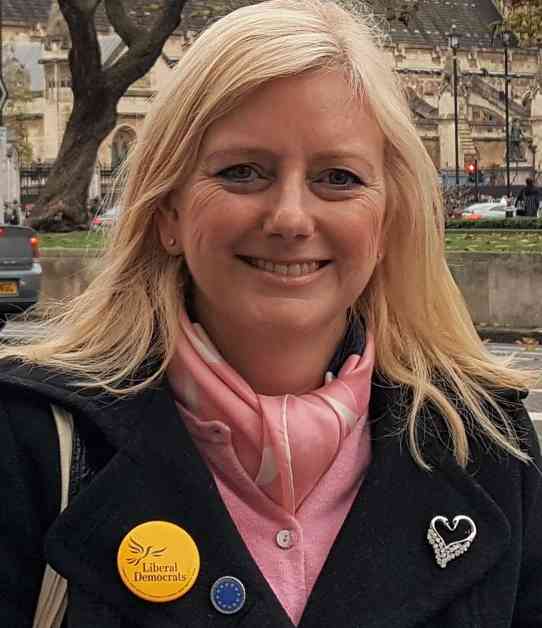Liberal Democrat Councillor Antonia Harrison has bravely come forward to share her struggles with mental health following the UK’s departure from the European Union. In a poignant speech at the party’s autumn conference in Brighton, Harrison revealed that she had been diagnosed with Post-Traumatic Stress Disorder (PTSD) as a result of the traumatic events surrounding Brexit. She spoke of the profound impact that Brexit has had on her life, stating that “something died in me… I just gave up” after Britain left the EU.
Harrison, who represents the Liberal Democrats in Havant, near Portsmouth, emphasized her strong European identity, stating, “I am European before I am English.” As a mental health therapist who stood against Penny Mordaunt in the 2019 general election, Harrison’s personal experiences shed light on the emotional toll that Brexit has taken on individuals across the country.
Subheadings:
The Emotional Toll of Brexit on Mental Health
Personal Stories of Struggle and Resilience
The Path Forward: Healing and Rebuilding
Harrison’s emotional testimony highlights the deep-rooted impact that political decisions can have on individuals’ mental well-being. She shared that Brexit has not only affected her psychologically but has also manifested in physical symptoms, such as losing her voice due to trauma. The diagnosis of PTSD in her medical history serves as a stark reminder of the lasting repercussions of political turmoil on personal lives.
The Liberal Democrat councillor’s personal connection to the EU, having lived in Brussels and learned multiple languages, further underscores the sense of loss and displacement felt by many who identify strongly with European values. Harrison’s daughter, who holds a masters in international law, also feels the impact of Brexit, as her aspirations to work in Brussels have been hindered by the UK’s departure from the EU.
Despite the challenges she faces, Harrison remains committed to advocating for a closer relationship with the EU and eventual rejoining efforts. The Liberal Democrats’ vision for repairing the UK’s fractured ties with the EU includes initiatives such as free movement policies for young people, allowing them to live and work across the bloc. By fostering stronger connections with European neighbors, the party aims to address the concerns and grievances that have arisen post-Brexit.
As Harrison reflects on the personal ramifications of Brexit, she shares poignant moments of loss and longing, such as being unable to retire in Marbella due to lack of health coverage. Her poignant description of passing through Malaga airport, seeing the UK flag alongside non-EU countries, evokes a sense of displacement and nostalgia for the days of seamless European integration.
In the wake of Brexit, Harrison’s story serves as a reminder of the complex emotional landscape that individuals navigate in response to political upheaval. As she grapples with the aftermath of the EU referendum, Harrison’s experiences shed light on the broader societal impact of Brexit on mental health and well-being.
Overall, Harrison’s courageous decision to speak out about her struggles with PTSD in the aftermath of Brexit brings attention to the often-overlooked emotional toll of political events. Her story serves as a testament to resilience and the human capacity to endure and overcome adversity, even in the face of profound loss and upheaval. As the UK navigates its post-Brexit future, it is essential to acknowledge and address the mental health challenges that individuals like Harrison continue to face.












